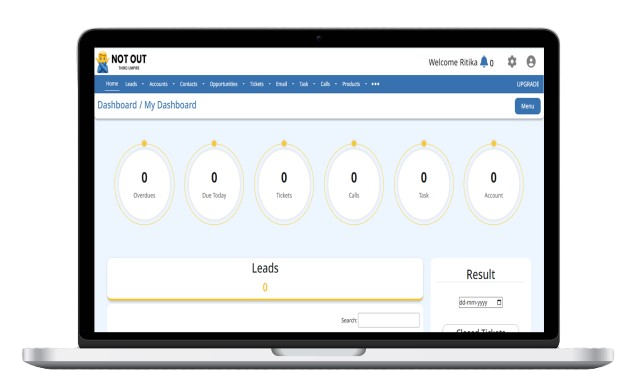What is CRM?
CRM, also known as customer Relationship Management, is a tool used by businesses to manage client connections and analyze customer interactions and data across the customer lifecycle. CRM is a strategic approach that includes practices, strategies, and technologies. CRM's primary goals are to improve customer relationships, assist with client retention, and increase sales. These systems collect consumer information from all of the company's touchpoints, including website contact forms, phone numbers for call centers, live chats on websites, postal addresses for direct mail or online advertising, and social media profiles managed by corporate communications teams. CRM systems help organizations better understand their consumers, speed up procedures, and enhance profits by offering a comprehensive view of the consumer.
They also provide tools for managing customer service units and support departments that engage with marketing and sales, among other services, ensuring harmony in terms of goal setting within a business while everyone understands each other's responsibilities. CRM should be included in modern corporate strategies since it may improve customer experience, which leads to better satisfaction and more sales, in addition to simpler processes.

Why is CRM used?
Customer Data Management
A CRM consolidates all customer information, including contact information, purchase history, and interactions, into a single system that sales, support, and marketing teams can simply access and manage.
Sales Management
CRMs track the whole sales cycle, from lead generation to deal closure, allowing businesses to manage prospects, monitor sales pipelines, and identify opportunities for upselling or cross-selling.
Automation
CRM automates routine tasks like as sending follow-up emails, processing bills, and scheduling appointments, allowing teams to focus on more important aspects of customer care.
Customer Support
It offers solutions for tracking and resolving client issues, ensuring timely and efficient responses to inquiries and support tickets, which leads to increased customer satisfaction.
Analytics and Insights
CRM systems feature comprehensive reporting and analytics tools that allow businesses to track performance metrics, assess customer behavior, and make data-driven decisions.

Positive aspects of using a CRM For Your Business

Personalized Customer Service : CRM systems provide precise customer insights, enabling targeted interactions and higher customer satisfaction.
Streamlined Operations : Automates regular operations and integrates many functions to increase overall corporate efficiency.
Improved Sales Management : Tracks leads, opportunities, and sales KPIs, resulting in more successful sales tactics and higher revenue.
Targeted Marketing : Enables exact audience segmentation and campaign tracking, leading to more effective marketing activities.
Enhanced Collaboration : Offers a centralized platform for team communication and information exchange, which improves coordination and production.
Scalability : CRM systems evolve with the business, ensuring that customer management processes stay effective as the firm grows.